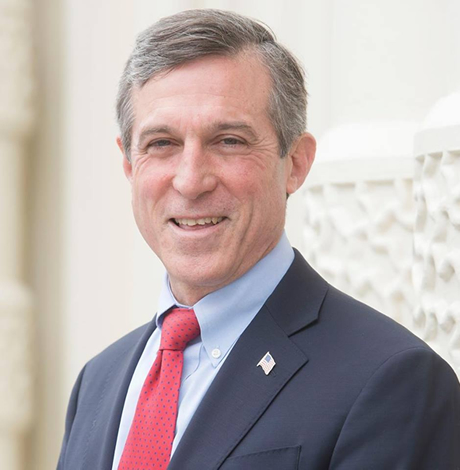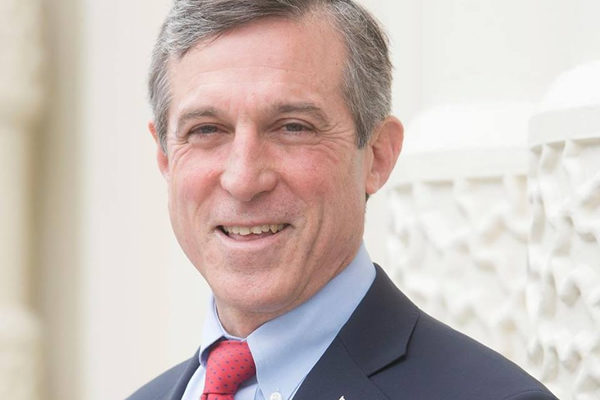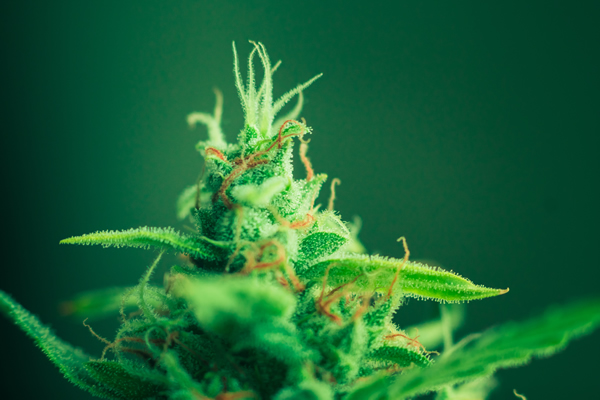Cannabis Culture
Cannabis Culture
Del. expands doctors’ ability to authorize medical cannabis


Del. expands doctors’ ability to authorize medical cannabis
DOVER, Del. — Democratic Gov. John Carney has signed legislation into law expanding physicians’ discretion to recommend medical cannabis therapy to patients.
Senate Bill 24 amends the state’s medical marijuana access law by permitting physicians, under specific circumstances, to issue cannabis recommendations to patients who are not diagnosed with a pre-approved qualifying condition. In such circumstances, an authorizing physician must attest that the patient possesses a “debilitating condition, [that] current standard care practices and treatments have been exhausted, and [that] there are grounds to support that the patient may benefit from this treatment.” The physician is also required to perform ongoing evaluations of the patient’s progress with regard to whether the treatment is efficacious.
The new law took effect upon signing.
An estimated 6,000 patients are registered with the state to obtain medical cannabis products.
Congress votes to legitimize retail cannabis sales
Members of the U.S. House of Representatives voted last week in favor of legislation, HR 1595: The SAFE Banking Act, explicitly amending federal law so that financial institutions may work directly with state-licensed marijuana retailers and other related businesses.
House members voted 321 to 103 in favor of the legislation, with 229 Democrats and 91 Republicans casting ‘yes’ votes.
Commenting on the vote, NORML Political Director Justin Strekal said: “This vote is a significant first step, but it must not be the last. Much more action will still need to be taken by lawmakers. In the Senate, we demand that lawmakers in the Senate Banking Committee hold true to their commitment to move expeditiously in support of similar federal reforms. And in the House, we anticipate additional efforts to move forward and pass comprehensive reform legislation like The MORE Act — which is sponsored by the Chairman of the House Judiciary Committee — in order to ultimately comport federal law with the new political and cultural realities surrounding marijuana.
Federal law currently defines all marijuana-related business endeavors as criminal enterprises, including those commercial activities that are licensed and legally regulated under state laws. Therefore, almost no state-licensed cannabis businesses can legally obtain a bank account, process credit cards, or obtain loans for small businesses and entrepreneurs.
Australian territory is first to legalize pot for personal use
CANBERRA, Aust. — Members of the legislative assembly for the Australian Capital Territory (ACT) have enacted legislation de-penalizing activities related to the personal possession and cultivation of cannabis. An estimated 400,000 people reside in the ACT, which includes Australia’s capital, Canberra.
Under the new law, which takes effect on Jan. 30, 2020, adults may possess up to 50 grams of cannabis and cultivate up to four plants per household without penalty. Public cannabis consumption, or use within close proximity to children, will remain prohibited. Under the territory’s existing law, low-level marijuana offenses are punishable by civil fines.
The ACT’s policy conflicts with Australian federal law, which defines cannabis-related activities as criminal offenses. Between 2017 and 2018, Australian police made over 72,000 marijuana-related arrests – 92 percent of which were for personal possession.
Mass. regulators vote in favor of cannabis deliveries
Boston — Members of the state’s Cannabis Control Commission decided this week in favor of regulations to establish licensing for retail cannabis deliveries and for limited on-site consumption facilities.
Members voted 4 to 1 in favor of the provisions. Regulators in May had previously advanced the idea of permitting social use spaces.
A separate provision approved unanimously by the Commission eliminates the annual fee associated with patients’ medical cannabis registration cards.
Regulators anticipate accepting applications for home-delivery licenses within “a couple of months.” Applicants will first need to gain the approval of local communities prior to seeking a state-issued permit. Deliveries will not be permitted after 9pm or before 8am, and retailers are prohibited from delivering cannabis to college dormitories.
Regulators expect the rollout for the licensing of consumption facilities to be slower, and legislative changes to existing state law may be required before the program can become operational.
To date, only Alaska has finalized statewide regulation governing on-site facilities. In May, Colorado lawmakers enacted legislation regulating both marijuana deliveries and “hospitality spaces.” Those laws take effect on January 1, 2020.
In a separate action taken this week, Republican Gov. Charlie Baker instituted an emergency ban on the retail sale of all vapor cartridge products. The retail ban took immediate effect and will remain in place until January 25, 2020. Massachusetts in the first state to enact an explicit ban on the sale of any vaping-related product.
Cannabis Culture news in the Blade is provided in partnership with NORML. For more information, visit norml.org.

Democratic Gov. Michelle Lujan Grisham earlier this month signed two separate measures into law amending the state’s marijuana policies. The first measure (House Bill 2) legalizes and regulates marijuana possession, production, and sales for adults. The second measure (Senate Bill 2) facilitates the automatic review and expungement of the records of those convicted of low-level marijuana offenses.
Lawmakers approved both bills during a special legislative session demanded by Gov. Lujan Grisham, who had been a vocal proponent of the reforms.
NORML State Policies Manager Carly Wolf said: “This is a day to celebrate! New Mexico will greatly benefit from this new revenue stream and the creation of thousands of jobs. Most notably though, legalization will spare thousands of otherwise law-abiding residents from arrest and a criminal record, and the state’s new expungement law will help provide relief to many who are suffering from the stigma and other collateral consequences associated with a prior marijuana conviction.”
The adult-use measure (House Bill 2) permits those ages 21 and older to legally purchase up to two ounces of marijuana and/or up to 16 grams of cannabis extract from licensed retailers. It also permits adults to home-cultivate up to six mature plants for their own personal use. Retail sales would begin by April 2022.
The expungement measure (Senate Bill 2) stipulates that those with past convictions for offenses made legal under this act are eligible for automatic expungement of their records. Those currently incarcerated for such offenses are eligible for a dismissal of their sentence. It’s estimated that over 150,000 New Mexico residents are eligible for automatic expungement under this measure, according to the Department of Public Safety.
Cannabis Culture news in the Blade is provided in partnership with NORML. Visit norml.org for more information.
Cannabis Culture
Delaware cannabis activists take on corporate marijuana
Criticism from medical marijuana operators claimed that HB150 offers too many cultivation and retail licenses

As the country moves forward with sweeping changes in cannabis policy reform, locals in Delaware are tangling with corporate, multi-state medical marijuana permit holders to pass a bill for full legalization.
Adult-use activists and registered medical patients were stunned to hear opposing testimony from Delaware’s medical marijuana operators. Patients already deal with limited access and costly products. Now, many see the established industry voicing opposition as simply obstructing the progress of adult-use legislation. In response, some patients are now staging a boycott of the regulated dispensaries.
During the first committee hearing for HB150, Delaware’s adult-use bill, four of the state’s six currently licensed, multi-million dollar medical cannabis facilities offered negative testimony.
Zoë Patchell, executive director of Delaware CAN responded: “This market belongs to the long-time consumers, patients, and activists. We create the demand, we’ve been the ones driving the reform efforts, and we pay the prices at dispensaries. Cannabis is more than a market – cannabis is a community. These companies cannot reasonably fathom that we are going to purchase cannabis from any entity that has proven to put profits over patients. And now they seem willing to put consumers’ lives and freedom at risk just to hold out for an unfair advantage in the industry.”
These included publicly traded Columbia Care, “Fresh Delaware” aka CCRI, CannTech Research Inc., and the owner of EZY Venture aka “The Farm.”
They all went on record condemning HB150, and pushing a false narrative about oversupply. The core demand from the permit cartel was some protection for their private business interests with guaranteed adult-use licenses.
Criticism from the medical marijuana operators claimed that HB150 offers too many new cultivation and retail licenses, underlined by deep yet unfounded fears that the new competition would put their companies out of business.
Patchell noted, “We are not going to sit back while multi-state corporate entities, that already monopolize East Coast medical markets, work to undermine our social equity and micro-license provisions.”
Cannabis Culture news in the Blade is provided in partnership with NORML. Visit norml.org for more information.
Cannabis Culture
Virginia marijuana legalization takes effect July 1
Adult possession of cannabis up to one ounce without penalty

Following legislative approval of Democratic Gov. Ralph Northam’s amendments to Senate Bill 1406 and House Bill 2312, Virginia became the first southern state to legalize the possession and use of marijuana by adults.
Senate Bill 1406, introduced by Sen. Adam Ebbin (D-30) and Senate President Pro Tempore Senator Louise Lucas (D-18), and House Bill 2312, patroned by House Majority Leader Delegate Charniele Herring (D-46), establish a statutory timeline for the legalization of the commercial marijuana market in Virginia. The measure also permits for the personal possession and cultivation of cannabis by those ages 21 or older.
Last week, Gov. Northam recommended changes to the legislation to permit the personal use provisions of the law to take effect on July 1, 2021 rather than on January 1, 2024, the enactment date initially approved by lawmakers. A majority of the legislature concurred with that change.
Therefore, beginning July 1, 2021, adults will be permitted to possess up to one ounce of marijuana and to cultivate up to four cannabis plants per household without penalty.
The timeline by which state regulators have to enact provisions licensing commercial cannabis production and sales remains July 1, 2024.
Commenting on final passage, NORML Development Director Jenn Michelle Pedini, who also serves as executive director of Virginia NORML, said: “This is an incredible victory for Virginia. Legalization will bring an end to the thousands of low-level marijuana infractions occurring annually in the Commonwealth — ending a discriminatory practice that far too often targets Virginians who are young, poor, and people of color.”
Majority Leader Charniele Herring added: “It is a huge day for equity in the Commonwealth. Virginia is now the first state in the South to legalize recreational marijuana use, and I am so proud to have been able to carry this monumental legislation.”
Sen. Ebbin said, “The passage of SB1406 caps off years of struggle to reform our broken and outdated marijuana laws and begins the deliberate steps to repeal the harms of the failed prohibition. I am thankful to NORML, the governor, and my colleagues for moving this 283 bill from inception to passage over the last four months, and look forward to continuing to partner with them to establish a regulated, equity focused, adult-use marketplace in the coming years.”
Newly released statewide polling data finds that 68 percent of registered voters in Virginia, including majorities of Democrats and Republicans, support legalizing marijuana for adults.
Additional amendments added by Gov. Northam will allow the sealing of records related to crimes involving the misdemeanor possession of marijuana with the intent to distribute. Those records will begin to be sealed starting on July 1, 2021. Separate legislation enacted in 2020 previously sealed records related to misdemeanor marijuana possession.
Records specific to the simple possession of marijuana and/or misdemeanor possession with intent to distribute records will be automatically expunged no later than 2025. Those with records specific to crimes involving the felony possession of marijuana with the intent to distribute may begin to petition the courts for an expounging of their records in 2025.
The bill also allows for the re-sentencing of individuals currently incarcerated for marijuana-related offenses. The measure permits those individuals to have a hearing before the court that originally sentenced them, with legal counsel provided for indigent individuals. However, this portion of the bill must be reenacted in 2022.
The legislation also establishes an independent agency, the Virginia Cannabis Control Authority, to oversee the establishment of regulations that will govern the adult-use market. This agency is set to convene this summer. The remainder of the 300-page bill, which details the regulatory and market structure and social equity provisions, is subject to a second review and vote by the Assembly next year.
Cannabis Culture news in the Blade is provided in partnership with NORML. Visit norml.org for more information.
-

 Africa5 days ago
Africa5 days agoCongolese lawmaker introduces anti-homosexuality bill
-

 District of Columbia2 days ago
District of Columbia2 days agoReenactment of first gay rights picket at White House draws interest of tourists
-

 District of Columbia1 day ago
District of Columbia1 day agoNew D.C. LGBTQ+ bar Crush set to open April 19
-

 Arizona2 days ago
Arizona2 days agoAriz. governor vetoes anti-transgender, Ten Commandments bill











